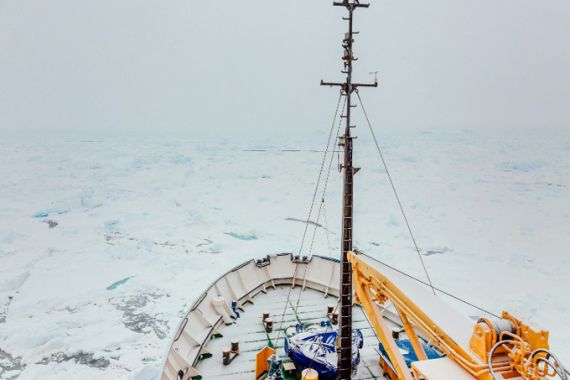Uncertain wait for stuck Russian ship
Two icebreaking ships have failed to reach the MV Akademik Shokaiskyly, which has been marooned since Tuesday.

Passengers on a Russian research ship trapped in thick Antarctic ice are facing an uncertain wait for one last icebreaking attempt with no guarantees of success.
The MV Akademik Shokalskiy has been marooned by heavy ice since Tuesday about 100 nautical miles east of the French Antarctic base Dumont d’Urville, with two icebreaking ships so far failing in attempts to reach it.
China’s Snow Dragon came tantalisingly close on Saturday, getting to within six-and-a-half nautical miles of the passenger vessel carrying 74 scientists, tourists and crew before impenetrable ice forced it to turn back.
The Australian government’s resupply ship Aurora Australis is now en route to make one final bid to free the icebound boat and is expected to reach the Akademik at 11pm Australian time (1200 GMT).
“It will then assess if it can make it through the ice to the Akademik Shokalskiy,” the Australian Maritime Safety Authority told AFP.
“If the Aurora Australis is not capable of getting through the ice, then we will look at utilising the helicopter on board the Chinese-flagged vessel (the Snow Dragon) which AMSA’s Rescue Coordination Centre (RCC) has tasked to remain in the vicinity.”
The Snow Dragon’s helicopter did a reconnaissance flight over the site on Sunday afternoon to determine the best approach route for the Australian icebreaker and returned with promising news.
“RCC Australia has been advised that ice conditions are improving,” an AMSA spokeswoman said.
Those on board the ship also reported an easing in the ice, with BBC journalist Andrew Luck-Baker describing “big cracks appearing way towards the horizon”.
“Pools of water are beginning to open up and we’re just wondering whether this is our lucky break,” Luck-Baker told the Australian Broadcasting Corporation.